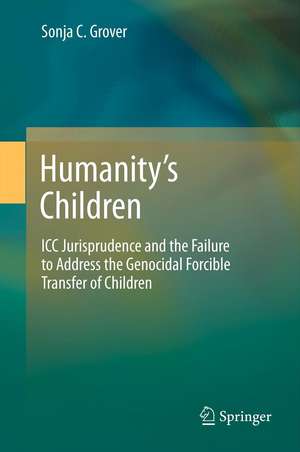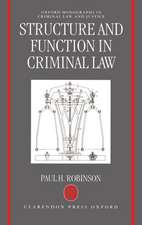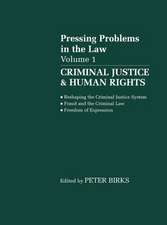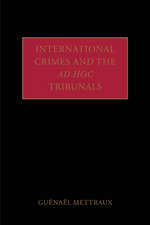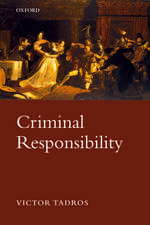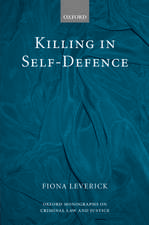Humanity’s Children: ICC Jurisprudence and the Failure to Address the Genocidal Forcible Transfer of Children
Autor Sonja C. Groveren Limba Engleză Hardback – 13 dec 2012
| Toate formatele și edițiile | Preț | Express |
|---|---|---|
| Paperback (1) | 946.41 lei 6-8 săpt. | |
| Springer Berlin, Heidelberg – 29 ian 2015 | 946.41 lei 6-8 săpt. | |
| Hardback (1) | 952.57 lei 6-8 săpt. | |
| Springer Berlin, Heidelberg – 13 dec 2012 | 952.57 lei 6-8 săpt. |
Preț: 952.57 lei
Preț vechi: 1161.67 lei
-18% Nou
Puncte Express: 1429
Preț estimativ în valută:
182.30€ • 197.95$ • 153.13£
182.30€ • 197.95$ • 153.13£
Carte tipărită la comandă
Livrare economică 22 aprilie-06 mai
Preluare comenzi: 021 569.72.76
Specificații
ISBN-13: 9783642325007
ISBN-10: 3642325009
Pagini: 338
Ilustrații: XII, 324 p.
Dimensiuni: 155 x 235 x 25 mm
Greutate: 0.65 kg
Ediția:2013
Editura: Springer Berlin, Heidelberg
Colecția Springer
Locul publicării:Berlin, Heidelberg, Germany
ISBN-10: 3642325009
Pagini: 338
Ilustrații: XII, 324 p.
Dimensiuni: 155 x 235 x 25 mm
Greutate: 0.65 kg
Ediția:2013
Editura: Springer Berlin, Heidelberg
Colecția Springer
Locul publicării:Berlin, Heidelberg, Germany
Public țintă
ResearchCuprins
Part I Introduction: Reconsidering the Legal Concepts of Genocide and the ‘Genocidal Forcible Transfer of Children’.- Part II ICC Prosecutor Case Selec-tion and Charging Decisionn: Gravity and Interests of Justice Considerations.- Part III Selected ICC Cases Illustrating the Failure to Address the Genocidal Forcible Transfer of Children: Case 1: Prosecutor v. Thomas Lubanga Dyilo.- Case 2: Prosecutor v. Germain Katanga and Mathieu Ngudjolo Chui.- Case 3: Prosecutor v Omar Hassan Ahmad Al Bashir.- Part IV Conclusion: The Geno-cidal Forcible Transfer of Children: A Crime Well Established in International Law; Yet Still Not Prosecuted by the ICC.
Textul de pe ultima copertă
This book addresses the phenomenon of children as the particular targets of extreme cruelty and genocide during armed conflict. Selected International Criminal Court cases are analyzed to illustrate the ICC‘s failure to address the genocidal forcible transfer of children to armed State and/or non-State groups or forces perpetrating mass atrocities and/or genocide. An original legal interpretation of children as a protected group in the context of the genocide provision of the Rome Statute is provided. The work also examines certain examples of the various modes in which armed State and/or non-State groups or forces perpetrating mass atrocities and/or genocide appropriate children and accomplish the genocidal forcible transfer of children to the perpetrator group. It is argued that the failure to prosecute the genocidal forcible transfer of children through the ICC mechanisms (where the Court has jurisdiction and the State has failed to meet its obligations in this regard) undermines the perceived gravity of this heinous international crime within the international community. Furthermore, this ICC failure to prosecute conflicts with the interests of justice and ultimately results in an erosion of the respect for the personhood and human dignity of children.
Caracteristici
Includes supplementary material: sn.pub/extras
